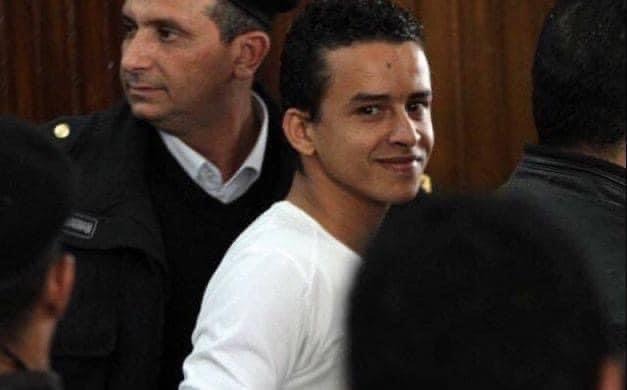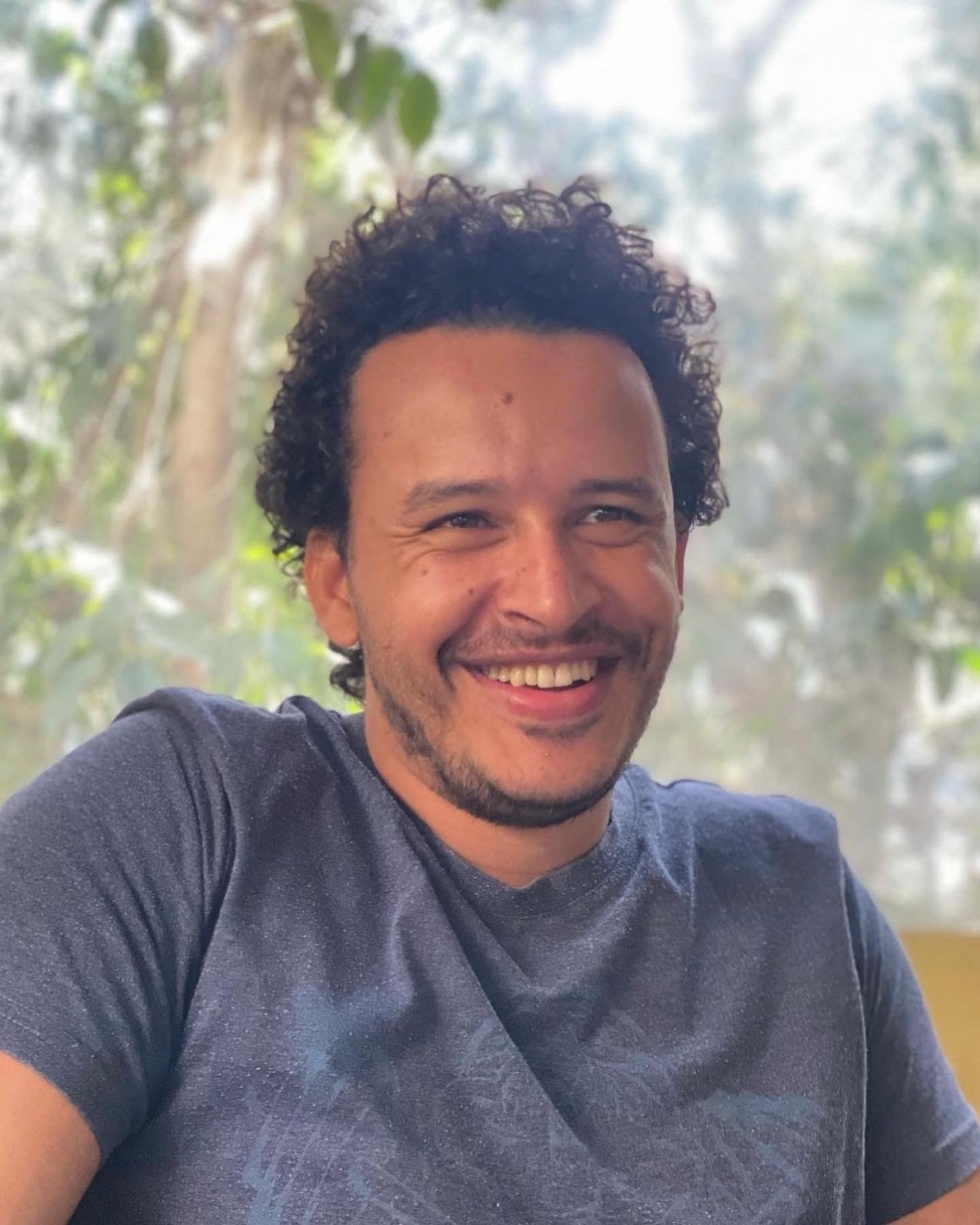Mahmoud Hussein, a protester who had already spent two years in arbitrary pretrial detention for wearing an anti-torture T-shirt, was re-arrested on August 30. After his release on bail in 2016, he was convicted of bogus charges and sentenced to life imprisonment in his absence in a grossly unfair trial by an emergency court marred by allegations of torture. He is detained at Badr 1 prison pending his retrial, amid concerns over his health. He must be immediately and unconditionally released as his detention is solely linked to the exercise of his human rights, including wearing an anti-torture T-shirt.
Here’s what you can do:
Write to the Public Prosecutor urging him to:
- Ensure Mahmoud Hussein’s immediate and unconditional release.
- Quash his conviction and sentence, ensuring that all charges against him are dropped as they stem from the exercise of his right to freedom of expression.
- Pending his release, guarantee that he is granted regular access to his family, lawyers and adequate medical care, including in outside hospitals if necessary, and held in conditions that comply with international standards for the treatment of prisoners.
Write to:
Public Prosecutor Mohamed Shawky Ayyad
Office of the Public Prosecutor
Madinat al-Rehab, Cairo,
Arab Republic of Egypt
Twitter: @EgyptianPPO
And copy:
His Excellency Ahmed Abdallah Ibrahim HAFEZ
Ambassador
Embassy of the Arab Republic of Egypt
454 Laurier Avenue East
Ottawa, ON K1N 6R3
Email: embassy.Ottawa1@mfa.gov.eg
Tel: (613) 234-4931, 4935 Fax: (613) 234-9347/234-4398
Background
Security forces first arrested then 18-year-old Mahmoud Hussein on January 25, 2014, in the aftermath of protests marking the third anniversary of the January 25 Revolution. Security forces stopped him at a checkpoint in the neighborhood of El-Marg, northern Cairo, when he was returning home on a bus from protests, and arbitrarily arrested him simply because he was wearing a T-shirt with the slogan “A Nation Without Torture” and a scarf with the emblem of the January 25 Revolution.
Amnesty International documented how, following his arrest in 2014, National Security Agency officials subjected him to torture and other ill-treatment, including beatings and the use of electric shocks to his hands, back and testicles.
As a result of the torture, he was forced to “confess” to belonging to a banned group, possessing Molotov cocktails and hand grenades, and participating in unauthorized protests, with his forced “confession” recorded on video. The day after he “confessed” on camera, Mahmoud Hussein was taken for questioning by the Supreme State Security Prosecution (SSSP).
He denied all the accusations and said he had been tortured to “confess”, but the prosecutor did not refer him for forensic examination or order any investigation into his torture allegations.
Inhumane prison conditions
Mahmoud Hussein stayed in El-Marg police station for six days and was later transferred to Abu Zaabal Prison where he was beaten upon arrival. In May 2014, he was transferred to the Cairo’s Tora Appeal Prison, where he was also subjected to beatings on at least two occasions.
He was eventually transferred to Cairo’s Tora Investigations Prison. He remained in pretrial detention under case number 715 of 2014 in El-Marg and was referred for trial on January 31, 2016. On March 24, 2016, he was released on bail of 1,000 Egyptian pounds.
Mahmoud Hussein is currently held in Badr 1 Prison, located 70 km northeast of Cairo. According to Amnesty International’s previous research, prisoners there complain of cruel and inhumane conditions characterized by deliberate denial of healthcare, exposure to extreme cold and constant camera surveillance.
Family visits for other prisoners are only allowed every two months for 20 minutes and are conducted through a glass barrier preventing direct and physical contact with loved ones. This is in breach of Egypt’s prison regulations that stipulate weekly visits lasting no less than 45 minutes for detainees in pretrial detention.

Freedom of expression under attack
Mahmoud Hussein’s renewed arrest comes amid a wave of fresh arrests of critics and relatives of dissidents based abroad. In August 2023, the authorities arrested the fathers of Egyptian journalist Ahmed Gamal Ziada, based in Belgium, and German-Egyptian activist Fagr al-Adly, based in Germany.
Both have been questioned about their sons’ activism. Another activist and former detainee Ahmed Hamdy al-Sayed, also known as “Gika”, was rearrested in June 2023 and subjected to enforced disappearance until August 27, 2023, when prosecutors ordered his detention pending investigations into bogus accusations of “spreading false news”.
Prominent opposition politician Hisham Kassem has also been arbitrary detained since August 20, 2023, solely for exercising his right to freedom of expression. On 16 September, he was convicted of defamation, “insulting” officials and other politically motivated charges and sentenced to six months in prison and a monetary fine.
On September 2, 2023, prominent activist Mohamed Adel was sentenced to four years’ imprisonment on bogus charges of “spreading false news”. These unrelenting arrests and prosecutions expose the authorities’ lack of genuine commitment to reform, despite the recent releases of a handful of critics and the long-awaited launch of the National Dialogue with elements of the political opposition in May 2023.
From August 1 to September 13, 2023, Amnesty International recorded the arrest, interrogation by the SSSP and detention pending investigations of at least 385 individuals over accusations of belonging to terrorist groups, “spreading false news” or “misuse of social media”.
Similar charges in new cases were brought by the SSSP against at least 17 individuals who had been held in prolonged pre-trial detention, in a practice commonly referred to as “rotation”. During the same period, 47 individuals held for political reasons have been released by the SSSP pending investigations or through presidential amnesty.

























